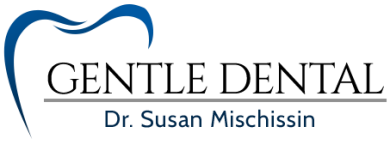Here at Mischissin Dental, we provide gentle and compassionate care for patients of all ages, even the youngest members of your family. From your child’s first dental visit to maintaining a healthy smile at home, our team will go the extra mile to ensure your family is taken care of.
Learn about pediatric dentistry and our quality, comprehensive services offered at our Cape May Court House, NJ office.
Tooth Eruption, New Teeth & Teething
The way your child cares for their primary (baby) teeth plays an important role in the development of their permanent (adult) teeth. Learn about infant tooth eruption, their new teeth, and how to help your child while they’re teething.
Your child’s first tooth will start to come in, or erupt, anywhere between four to 12 months of age. Normally, the lower central incisors begin to push through the gums first, and then the upper central incisors. These are called primary or “baby” teeth. The rest of their primary teeth typically erupt by the age of three, and permanent teeth begin eruption around six years old.
Without primary or baby teeth, children can’t chew food properly and may have difficulty speaking clearly. Primary teeth are also crucial for jaw development and directing permanent teeth into proper alignment.
Infants with missing baby teeth or who prematurely lose them may require a space maintainer. This is a device commonly used to hold the natural space open. Without a maintainer, your child’s teeth can begin to tilt and cause permanent teeth to come in crooked.
When your child’s first tooth erupts, their gums may become sore, tender, and irritable until the age of three. There are several ways to help soothe the gums, like using a teething ring or gently rubbing sore gums with a clean finger, the back of a cold spoon, or a cold, wet cloth.
It’s important to monitor your baby’s teeth for signs of baby bottle decay. Examine the teeth every two weeks for dull spots or lines that appear whiter than the tooth surface. Decay can be caused by leaving a bottle in an infant’s mouth while sleeping, containing anything other than water.
A Child’s First Dental Visit
The American Academy of Pediatric Dentistry recommends that infants six to 12 months of age, or around their first birthday, should be seen by a dentist. Your child’s first appointment will be focused on getting to know and becoming comfortable with their doctor and staff. This will help build trust and put your child at ease during future dental visits.
We’ll also teach your child the importance of oral health and proper dental hygiene, such as brushing and flossing.
Why Primary Teeth are Important
Primary or baby teeth are important for a number of reasons. They play a crucial role in building your child’s self-image from an early age. Good, healthy teeth allow your child to eat with ease and maintain good nutrition. They also promote clear pronunciation, proper speech habits, and the eruption of permanent teeth.
 Good Diet & Healthy Teeth
Good Diet & Healthy Teeth
The teeth, bones, and soft tissue of the mouth, especially your child’s, require a healthy and well-balanced diet. This includes incorporating a variety of nutritious foods from the five food groups: fruits, vegetables, grains, protein, and dairy. These foods will help minimize cavities, prevent further dental problems, and promote strong teeth.
Preventing Baby Bottle Tooth Decay
If children experience tooth decay in their primary teeth, they’re more likely to develop decay in their permanent teeth. Infant tooth decay can be minimized or even prevented by not allowing infants to breast or bottle-feed while sleeping. If your baby requires a bottle to comfortably fall asleep, we recommend giving them a water-filled bottle or pacifier.
Frequently Asked Questions
A dental sealant is a thin, plastic coating applied to the biting surface of a tooth. This creates a safe barrier from bacterial plaque and acids that cause tooth decay. Sealants will help prevent cavities in children under the age of 12 and can be applied in a single visit. They’re designed to protect your child’s teeth for up to 10 years with good oral hygiene.
A bottle containing anything other than water and left in an infant’s mouth while sleeping can cause decay. This happens because sugar in the liquid mixes with bacteria in dental plaque, forming acids that attack the tooth enamel. Each time a child drinks liquid containing sugar, acid attacks the teeth for about 20 minutes.
When awake, saliva carries away the liquid. During sleep, the saliva flow significantly decreases and liquids pool around the child’s teeth for long periods, covering the teeth in acids.
Dr. Mischissin recommends these tips for taking care of a toddler’s teeth:
- Move your toddler off the bottle as soon as possible. Toddlers should be drinking liquids from some form of a cup no later than one year old.
- When your toddler’s teeth start coming in, start brushing their teeth to get them used to the idea of brushing.
- Confine sugar intake to meal-time. Sugared-sweetened beverages shouldn’t be consumed throughout the day.
Children should start flossing when their primary or baby teeth begin to touch each other. Typically, this begins when your child is about two to three years old. Your child will require help flossing their teeth until they’re able to do it correctly on their own. This usually happens around the age of seven.
Gentle, Family-Centered Care at Mischissin Dental
If you’re in need of pediatric dental care, you can trust that your child is in good hands here at our Cape May Court House, NJ practice. Give us a call at (609) 465-4411 or simply fill out a contact form to schedule your child’s first appointment. We look forward to welcoming you and your child to our Mischissin Dental family.

